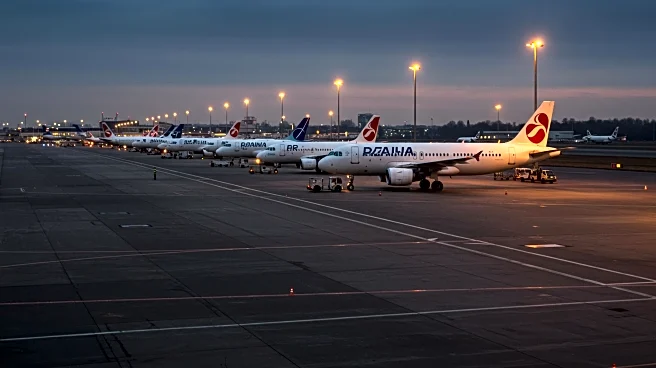What's Happening?
Air Canada flight attendants have initiated an indefinite strike, leading to the grounding of most flights and affecting thousands of passengers, including approximately 27,000 U.S. travelers daily. The strike results from stalled negotiations over wages and compensation between the union and airline management. The Canadian government has intervened, directing the Canada Industrial Relations Board to impose binding arbitration to resolve the dispute. This action aims to extend the current collective agreement until a new one is determined.
Why It's Important?
The strike has significant implications for U.S. passengers who rely on Air Canada for international travel connections, particularly to Europe and Asia. As a major connector, Air Canada's disruption affects travel plans and could lead to increased demand and congestion at U.S. airports. The government's intervention highlights the importance of maintaining industrial peace and protecting economic interests. The strike underscores the challenges airlines face in labor negotiations and the potential impact on global travel networks.
What's Next?
The Canada Industrial Relations Board's arbitration process will determine the next steps in resolving the strike. Passengers affected by cancellations are advised to seek rebooking options, though availability may be limited due to peak travel season. Air Canada is working to accommodate passengers on other carriers, but the process may take time. The strike's resolution will depend on the arbitration outcome and the willingness of both parties to negotiate a fair agreement.








